Neuroscience Program Alumni
The neuroscience major prepares students for almost any career by giving students the opportunity to learn to think critically, synthesize material across disciplines, and problem solve.

What is you current job?
I am currently working at Beth Israel Deaconess Hospital in Boston as a NP in the Neurosurgery department.
What is your favorite thing about their job?
I have recently completed training to become a first assistant in the operating room and am working on completing my 270 required hours for clinical experience. I love the dynamic pace of Neurosurgery. We are building a residency program right now so most of the department is covered by the APPs- we see all neurosurgery patients in the emergency room, cover the operating room cases, and care for all the inpatients including the TSICU, SICU, Neuro ICU, intermediate step down unit, and floor. This role is extremely hands on and is truly empowering as a Nurse Practitioner.
How does the study of neuroscience relate to your work?
I have always been drawn towards neuroscience; I worked on the neurosurgical Med-surg floor as a nurse at BWH, my first NP job was in the Neuro ICU at BIDMC and now I’m working with Neurosurgery. All my undergraduate studies are being put to good use on a daily basis!
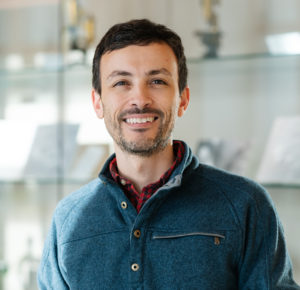
What is your current job?
Assistant Professor, Department of Biological Sciences, Dartmouth College
What is your favorite thing about your job?
Working with students and other researchers to investigate how cells in the brain interact during development and determine how these interactions are disrupted in disease.
How does the study of neuroscience relate to your work?
My undergraduate degree in neuroscience from Trinity paved the way for my career in academia. I used the solid foundation gained at Trinity to subsequently obtain a PhD, work as a postdoctoral fellow, and now start my independent lab as a neurobiologist at Dartmouth
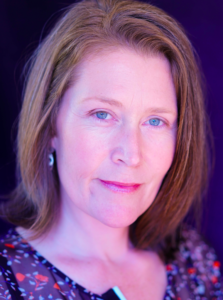
What is your current job?
Associate Professor, Department of Psychiatry and Weill Institute for Neurosciences, University of California, San Francisco
What is your favorite thing about your job?
I love having the freedom to decide what I spend my time thinking about and working on. I have wonderful, interesting colleagues and and am grateful to work along side others who want to make the world a healthier, better place so that all children can reach their potential. I almost always find what I do stimulating and engaging.
How does the study of neuroscience relate to your work?
Neuroscience is central in my research. I strive to generate generalizable and replicable findings about the experiences in early life that influence the mental health of children. I lead or co-lead several studies of children, the overarching goals of which are to understand the environmental factors that shape the development of specific neurodevelopmental processes (e.g. executive function, emotion regulation) measured both through direct assessments and neuroimaging. My hope is that a more nuanced understanding of the relationships between experience and brain development will allow us to develop more effective early childhood interventions that allow all children to reach their potential.
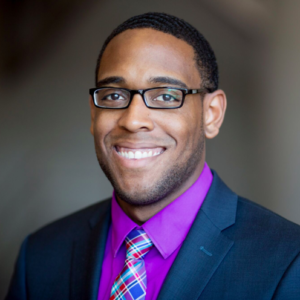
What is your current job?
I’m currently the Managing Director of Teacher Leadership Development for Teach For America in Massachusetts. It’s quite a unique position for a neuroscience degree but I did my masters in Curriculum and Instruction after Trinity and taught middle school science before becoming a school administrator and most recently took this role where I supervise our coaches for all the teachers in our teacher prep program across the state.
What is your favorite thing about your job?
I love working with new teachers and getting them to realize their potential as change agents for students. I also enjoy that I get to see our teachers in action across our 60+ partner schools and see how schools operate in different districts and settings.
How does the study neuroscience relate to your work?
My work is directly related to figuring out the best ways people learn. My interest in learning how the brain functions, coupled with my love of working with youth makes me consistently think back to the various studies and research I did in college and how it relates to my job now- which is getting folks to understand the best ways students learn, how barriers in their ability to learn can also be overcome with various strategies.
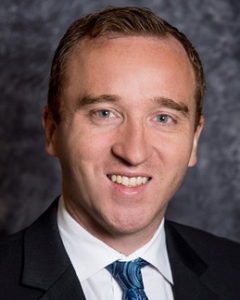
What is your current job?
Neurosurgeon
What is your favorite thing about your job?
Helping people with epilepsy become seizure-free, something they previously didn’t think was possible.
How does the study of neuroscience relate to your work?
As a neurosurgeon, we get to apply the latest findings in neuroscience and medicine to our patients to try and help them overcome diseases as they relate to the brain!

What is your current job?
Executive Assistant to the CEO of GMHC (Gay Men’s Health Crisis), the worlds first and leading HIV/AIDS service provider.
What is your favorite thing about your job?
My favorite thing about my job is being able to continue the work of the pioneers who addressed a nation-wide health epidemic that is so deeply intertwined in my identity as a queer person of color. Although I was not alive during the peak of the crisis, growing up in the early 90’s I recall the stigma and discrimination against the LGBT community regarding HIV/AIDS so much so that throughout my collegiate, and post-collegiate career I made conscious efforts to spend time giving back to the community. Being here at GMHC not only fulfills that sense of giving back, but being an executive assistant to the CEO makes gives a direct hand in finding the solution, whether that is preparing presentations, reviewing documents, and scheduling critical meetings in hopes to eventually end the AIDS epidemic and uplift the lives of all affected.
How does the study of neuroscience relate to your work?
Although my studies of the brain are not directly applicable to my work today, I do believe that my education gives me the upper hand in my interaction with all levels of management, as well as clients. Particularly, my senior year research on prospective memory (the ability to remember things in the future) has greatly helped me as an executive assistant, because I am constantly thinking ahead and trying to plan and organize around someone else’s disorganization. In addition, understanding social queues have helped me immensely during meetings and networking/fundraising events.
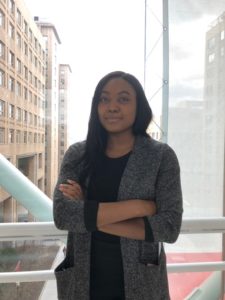
What is current job?
Neuroimaging Research Associate at Columbia University Medical Center – Taub Institute for Research on Alzheimer’s Disease and the Aging Brain
What is your favorite thing about your job?
Being able to work with people who are passionate about neuroscience and neuropsychology, and who recognize the importance of understanding the effects of disease progression in people across all patterns of race, ethnicity and socioeconomic status. I also love being able to use my knowledge of neuroscience to postulate and thoroughly investigate large looming questions about Alzheimer’s disease that could ultimately have an impact on future treatment or elucidate unknown implications.
How their study of neuroscience relate to your work?
Understanding neuropsychological symptomology, neuropathology and molecular/cellular interactions and being able actively investigate correlations in disease is a central part of my job. I also conduct analyses which involve quality checking MRI sequences for signal artifacts, anatomical lesions and microhemorrhages, as well as measuring structural and functional changes – all which require a base knowledge of neuroanatomy.
